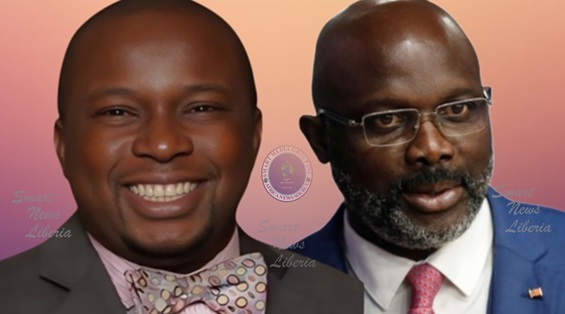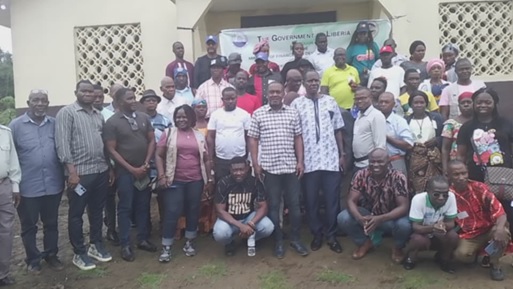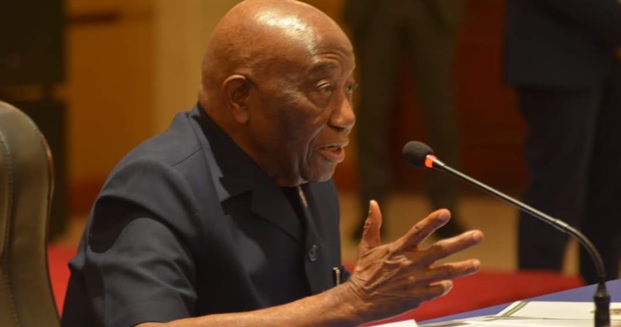LIBERIA – Former Auditor General of Liberia, John S. Morlu, has issued a scathing critique of former President George Weah and the Coalition for Democratic Change (CDC), revealing deep-seated regret and internal conflict among CDC members for their failure to audit the administration of former President Ellen Johnson Sirleaf and Vice President Joseph Boakai. Morlu’s revelations on Saturday, August 3, 2024, expose a deliberate cover-up of what he describes as “12 years of gross corruption” under Sirleaf and Boakai.
According to Morlu, former President Sirleaf admitted in her parting note that her biggest regret was not fighting corruption more aggressively, leaving the country in a deeply corrupted state. This admission, Morlu argues, presented Weah with a clear opportunity to address corruption. However, instead of seizing this chance to clean up the government, Weah and his administration saw an opening to further plunder the nation’s resources.
When Weah assumed office, he did so with a group of young idealists who quickly identified the loopholes in the existing corrupt system. Rather than closing these gaps, they exploited them for personal gain. This group, Morlu contends, found the benefits of maintaining the corrupt system far too enticing to resist, abandoning any pretense of reform.
In a notable debate, former Finance Minister Sam Tweah lashed out at Morlu, dismissing his persistent focus on corruption. Tweah accused Morlu of wanting to “witch-hunt” Sirleaf, declaring that such actions were not their concern and that they were “moving on.” However, as public pressure mounted and corruption scandals began to unravel, Tweah found himself ironically crying “witch hunt.”
Morlu recounts his discussions with Weah, where he advised the newly elected president to end impunity by thoroughly reviewing 12 years of audit reports, launching special investigations into 27 identified potential frauds, and swiftly prosecuting the culprits. Weah initially agreed to these recommendations but backed out two months later under the influence of powerful figures within his administration.
Justice Minister Frank Musah Dean supported investigating two major fraud cases that could have recovered a potential $600 million for Liberia. These investigations were to be conducted by a Portuguese forensic team alongside a Liberian team. However, Dean’s lack of resolve and fear of pushing through led to the abandonment of these crucial investigations, marking a significant failure in the fight against corruption.
Internal pressure and public outcry eventually forced Weah to take some action. He arrested Charles Sirleaf, the son of Ellen Johnson Sirleaf, and former Central Bank Governor Milton Weeks over the $16 billion scandal. Despite this, he left Sam Tweah untouched, despite the irregularities in the $25 million mop-up exercise, which the General Auditing Commission (GAC) had flagged.
Morlu emphasizes that Boakai must not repeat Weah’s mistakes by allowing untouchables within his administration. He recalls Weah’s attempt to appoint him as the head of an Asset Recovery Team, a process that ultimately failed due to internal sabotage and a lack of genuine commitment to transparency. This failure underscores the challenges of addressing systemic corruption without sincere and unwavering political will.
Recently, many CDC members have expressed regret to Morlu for not holding Boakai and Sirleaf accountable during their administration. They allege that Robert Sirleaf and the National Oil Company of Liberia (NOCAL) embezzled $200 million in 2013/2014. These accusations claim that the Sirleaf-Boakai administration “stole” $1.23 billion, with CDC members reportedly possessing numerous documents to support these allegations.
Morlu argues that the public’s outrage should be directed at Weah, not Boakai, for the deliberate cover-up of such extensive corruption. He stresses that Weah’s failure to address these issues represents a betrayal of the Liberian people and a significant dereliction of duty. Morlu calls for an end to the cycle of corruption that has plagued Liberia since its founding, emphasizing that any official, past or present, involved in corruption should be held accountable.
In a powerful closing, Morlu calls for a revolution led by honest professionals and workers to overthrow the deeply entrenched corrupt state. He asserts that Weah and his team committed an economic conspiracy against Liberia by covering up significant economic crimes for their personal gain. Morlu’s call to action is a rallying cry for Liberians, both at home and in the diaspora, to unite against the corruption that continues to undermine the nation’s development.
As the nation grapples with the legacy of corruption, Morlu’s call for a revolution against the deep state resonates as a powerful demand for justice and transparency.







